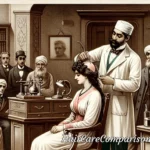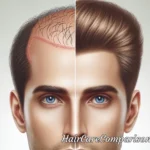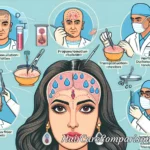As people age, they may start to experience hair loss or thinning. This can be a significant concern for many individuals, leading them to explore options such as hair transplants. However, age is an important factor to consider when determining if someone is a suitable candidate for a hair transplant procedure. In this article, we will delve into the age criteria for hair transplants and discuss what factors play a role in determining the right age for this treatment.
Understanding Hair Transplants
Before delving into the age criteria for hair transplants, it is essential to understand what a hair transplant procedure entails. Hair transplant is a surgical technique that involves moving hair follicles from one part of the body (donor site) to a balding or thinning area (recipient site). This procedure is typically performed to address male pattern baldness, but it can also be used to restore hair in other areas of the body, such as the eyebrows or beard.
Factors Influencing Age Criteria
Several factors influence the age criteria for hair transplants. While chronological age is a consideration, other factors play a significant role in determining whether a person is a suitable candidate for this procedure:
1. Type and Extent of Hair Loss
The type and extent of hair loss play a crucial role in determining the right age for a hair transplant. Individuals experiencing early-stage hair loss may not be ideal candidates for a hair transplant, as the progression of hair loss can continue even after the procedure. It is essential to stabilize hair loss before considering a transplant to ensure the longevity of the results.
2. Health Status
The overall health status of an individual is another critical factor in determining the age criteria for a hair transplant. Patients with underlying health conditions may not be suitable candidates for surgery, as they may have a higher risk of complications during the procedure or during the recovery period. It is essential for individuals considering a hair transplant to undergo a thorough health assessment to determine their suitability for the procedure.
3. Psychological Readiness
Psychological readiness is an often overlooked factor when considering the age criteria for hair transplants. It is crucial for individuals to have realistic expectations about the outcomes of the procedure and be mentally prepared for the changes in their appearance. Patients who are emotionally stable and understand the limitations of a hair transplant are more likely to have a positive experience and outcome.
Age Restrictions and Recommendations
1. Age Restrictions
While there is no specific age restriction for hair transplants, most surgeons recommend that individuals be at least 25 years old before considering the procedure. This age recommendation is based on the natural progression of hair loss in individuals, as younger patients may not have stabilized their hair loss patterns.
2. Ideal Age Range
The ideal age range for a hair transplant is typically between 30 to 60 years old. Patients within this age range are more likely to have stabilized hair loss patterns and are better candidates for the procedure. However, age alone is not the only determining factor, and other considerations such as health status and psychological readiness should also be taken into account.
3. Age Considerations for Younger Patients
While younger patients may be eager to address their hair loss concerns, it is essential for them to understand the risks and limitations of undergoing a hair transplant at a younger age. Patients in their 20s may not have fully developed patterns of hair loss, and undergoing a transplant at this age may require additional procedures in the future to maintain results.
Consultation and Evaluation

Prior to undergoing a hair transplant procedure, individuals should schedule a consultation with a qualified hair transplant surgeon. During the consultation, the surgeon will evaluate the individual’s hair loss pattern, overall health status, and psychological readiness to determine if they are a suitable candidate for the procedure. The surgeon will also discuss the expected outcomes, potential risks, and post-operative care instructions with the patient.
Post-Transplant Care and Maintenance
After undergoing a hair transplant procedure, patients must follow the post-operative care instructions provided by their surgeon. This may include avoiding strenuous activities, taking prescribed medications, and attending follow-up appointments. It is essential for patients to adhere to these guidelines to ensure optimal results and minimize the risk of complications.
Considering a hair transplant procedure but unsure about the age criteria? Learn more about the appropriate age for hair transplant in our article on appropriate age for hair transplant, factors to consider for discretion in hair transplant decisions in our post on discretion in hair transplant decisions, and the optimal age for undergoing a hair transplant in our piece on optimal age for hair transplant. Get all the information you need to make an informed decision about your hair restoration journey!
Conclusion
Age is an important factor to consider when determining if someone is a suitable candidate for a hair transplant procedure. While there is no specific age restriction for hair transplants, individuals should be at least 25 years old and have stabilized their hair loss patterns before considering the procedure. Consulting with a qualified hair transplant surgeon and understanding the factors that influence the age criteria can help individuals make informed decisions about addressing their hair loss concerns.






